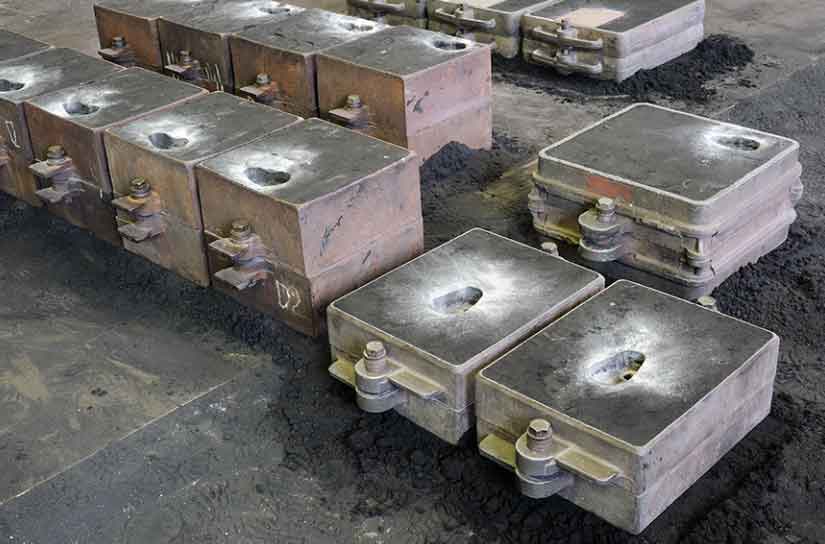Resin sand castings exhibit several mechanical properties that contribute to their durability and strength. Here are some key properties to consider when exploring the mechanical characteristics of resin sand castings:

- Tensile Strength: Tensile strength refers to the maximum amount of tensile stress a material can withstand before failure. Resin sand castings exhibit good tensile strength, making them suitable for applications that require resistance to pulling or stretching forces.
- Compressive Strength: Compressive strength is the ability of a material to withstand compressive or squeezing forces without deformation or failure. Resin sand castings typically possess high compressive strength, making them capable of withstanding heavy loads and pressure.
- Hardness: Hardness is a measure of a material’s resistance to indentation or scratching. Resin sand castings can achieve varying levels of hardness, depending on the specific metal alloy used. Higher hardness values indicate enhanced resistance to wear and deformation.
- Fatigue Strength: Fatigue strength refers to the ability of a material to withstand cyclic loading or repeated stress without failure. Resin sand castings can exhibit good fatigue strength, making them suitable for applications where cyclic or repeated loading is expected, such as in machinery or structural components.
- Impact Resistance: Impact resistance measures a material’s ability to absorb energy and resist fracture when subjected to sudden or high-velocity impacts. Resin sand castings can possess excellent impact resistance, ensuring their durability in applications where they may encounter sudden forces or shocks.
- Ductility: Ductility refers to a material’s ability to deform under tensile stress without fracturing. Resin sand castings can exhibit desirable levels of ductility, allowing for plastic deformation and absorbing energy before failure. This property enhances their ability to withstand dynamic or fluctuating loads.
- Corrosion Resistance: Corrosion resistance is the ability of a material to resist degradation or deterioration when exposed to corrosive environments, such as moisture, chemicals, or harsh atmospheric conditions. Resin sand castings can be made from corrosion-resistant alloys, making them suitable for applications where protection against corrosion is essential.
- Heat Resistance: Heat resistance refers to a material’s ability to withstand high temperatures without significant deformation or degradation. Resin sand castings can be produced using alloys with excellent heat resistance, making them suitable for applications where exposure to high temperatures is expected, such as in automotive or industrial components.
It is important to note that the specific mechanical properties of resin sand castings can vary depending on the chosen metal alloy, casting process parameters, and post-casting treatments. Manufacturers can tailor the mechanical properties of resin sand castings to meet the requirements of specific applications by carefully selecting the alloy composition and applying appropriate heat treatments or surface coatings.
Overall, resin sand castings can exhibit a wide range of mechanical properties, allowing them to meet the demands of various industries and applications that require durability, strength, and resistance to different types of forces and environmental conditions.
